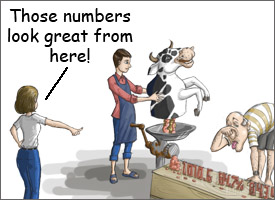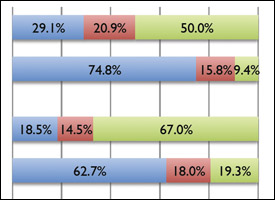by Sasha Alyson
Periodically, I receive inquiries such as these two:
“I am inspired by your work to address racism and colonialism in the charity sector, something I did not think about before. I want to support those inflicted by slave labour, child labour and forced labour particularly on coffee plantations, and where multinational companies profit from it. What do you recommend? What as an individual can I do, to make sure the organization I support is not perpetuating white supremacy?” –Juliet
“I have been lucky in the place and circumstances of my birth, lucky to receive a good education, lucky in much else. (I’ve also worked hard! But so do others who have far less to show for it.) I want to share some of what I have, but reading your stories makes me realize how hard it is to select an organization to support. Do you have any suggestions?” –JB
Thanks for letters, Juliet and JB, and for giving it so much thought. You are the exceptions.
I don’t have great answers. Here’s what I can offer.
1. Recognize that you can’t learn anything at all from what a charity or NGO says. Most of that is for fundraising purposes, even if it doesn’t say so. At best, you’ll get only part of the story. (You’ll see the things that were done with donor money. You won’t see the things that local people could have done, but didn’t, because they’d internalized the notion that “we’ll wait for an NGO to come do it.” Or because they were working for that NGO, on a project which dissolved as soon as the NGO and money were gone.) At worst, there’s a lot of outright deception out there.(1)
2. Realistically, even by looking at other information, it’s impossible for an individual donor to figure out who will spend a donation well. There’s an organization which does research this: GiveWell. GiveWell devotes considerable effort to its evaluations. Very few organizations get their approval. I believe you can feel confident about their integrity and research.
However, I fundamentally disagree with their underlying philosophy. GiveWell states: “We recommend the nonprofits that offer the most impact per dollar we’re aware of. In fact, we estimate that you can save a life by donating $3,000-$5,000 to our top recommendation.” But that’s measuring only a fraction of the impact – the fraction that donors feel best about. In Charity Versus Development: The aid industry’s bait-and-switch, I explain why charity is different from development, and may even hinder development. I would not donate to most of GiveWell’s choices; I’d rather devote my time and effort to stopping the actions of wealthy countries that make others dependent on charity. But for people who have decided to make charitable contributions, an organization vetted by GiveWell is a better choice than the big names which they pointedly do not recommend, such as World Vision, Unicef, and Save the Children.
3. I believe aid is best given as cash, allowing the recipient to decide what they want and need. (Furthermore, I believe it should be given as reparations, not as aid, but that’s another story.) An organization called GiveDirectly is one of the few that takes this approach, and is rated highly by GiveWell.
4. The West takes far more value from the global South than what it gives in aid.(2) This includes unpaid taxes on profits hidden by tax havens; interest on debt which didn’t benefit the recipient country and was never actually intended to; and the cost of environmental damage. I believe we should focus on stopping the harm, rather than feel-good donations that don’t fundamentally change the power relationships which keep poor countries poors. That’s why I spend half my time writing about karma colonialism, as well as spending what I can to promote the website. Our newsletter regularly suggests things you can do. So does this story: What Can We Do About It?
Juliet asks some specific questions about avoiding white-savior approaches and finding ethical coffee brands. I have not explicitly addressed those, because I don’t feel I have any special insights. Identifying true “fair-trade” brands is particularly difficult, even with several agencies that certify such practices.(3) A “fair trade” coffee producer may pay more to third-world growers, and meet fair trade criteria, even though it’s run by Europeans who do quite well off it, and have no intention of giving up their control. This relates to my criticism of GiveWell: If a white-savior-style NGO could demonstrate that in the short run, it saves lives at a lower cost than others, it appears it would get GiveWell’s blessing.
This is a broad topic, and there’s much that I don’t know. Readers are invited to add comments.
Comments from Twitter
We announced this story on Twitter, where readers made these comments.
Lady Linda Greene, @Qw5R2Hku7hdx7X0: This is a huge and important issue to be given sufficient thought. I know that there is genuine altruism and commend such people. Where such giving must go to do the most good should be deeply considered. Keep bringing this up as a topic Sasha and we will figure it out.
Fearless, Fast, Fred Ermlich, @FearlessFast: Donate to people in Alabama or Texas. That’s south enough. For those of us who live simple, subsistence lives without extractive economies or practices, you can give us your attention. Consider the differences between those of us living in Panamá and your extractive existence.
Notes and Sources
- I’ve been astonished to discover, again and again, how often U.N. agencies and large charities distort, deceive, and outright lie. A couple of stories are linked below. This story presents a particularly flagrant example: Save the Children Tells Donors Half the Story.
- Honest Accounts, from Health Poverty Action, looks at the myriad ways in which the West essentially continues to loot poorer regions, and estimates the size of these losses. You can read a summary on Al Jazeera.
- Wikipedia has a lengthy article about Fair Trade that addresses many of the issues.
Related stories


Right: The Lords of Poverty live well, on donations which they claim will help the world’s poorest. An NGO insider looks at who really benefits from aid.


Right: Selling good karma. Aid, in theory, is about helping others. But to a very large extent, it’s about purchasing permission to feel good about ourselves while ignoring unpleasant realities. Want proof? Ask the birds.


Right: Half the story. Save the Children boasts that children who got its Literacy Boost showed a three-fold improvement in reading skills. It doesn’t mention that those who did NOT get the program showed a FIVE-fold increase.


Right: “Will they just spend it on beer?” Instead of aid funds going to governments and NGOs, why not give it directly to the poor? Here are answers to common questions about cash transfer programs.
